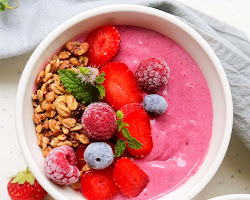Abu Dhabi is the capital of the United Arab Emirates and the second-most populous city in the country, after Dubai. It is located on an island in the Persian Gulf, off the Central West Coast. Most of the city and the Emirate reside on the mainland connected to the rest of the country.
Abu Dhabi is a wealthy city with a focus on oil exports and commerce. The skyline is dominated by modern towers and shopping megacenters. The city is also home to a number of important cultural attractions, including the Sheikh Zayed Grand Mosque, the Louvre Abu Dhabi, and the Emirates Palace.
Here are some of the things you can do in Abu Dhabi
* Visit the Sheikh Zayed Grand Mosque: This is one of the largest mosques in the world and is a must-see for any visitor to Abu Dhabi. The mosque is made of white marble and features intricate Islamic designs.
* Explore the Louvre Abu Dhabi: This museum is a partnership between the Louvre Museum in Paris and the government of Abu Dhabi. It houses a collection of art from around the world, including paintings, sculptures, and artifacts.
* Take a walk along the Corniche: This waterfront promenade is a great place to relax and enjoy the views of the city. There are also a number of cafes and restaurants along the Corniche.
* Visit the Emirates Palace: This luxurious hotel is a sight to behold. The hotel is made of gold and marble and features a number of impressive amenities, including a private beach, a spa, and a golf course.
* Go shopping at Yas Mall: This is one of the largest malls in the Middle East. It has over 400 stores, including international brands like Gucci, Louis Vuitton, and Prada.
* Visit Ferrari World Abu Dhabi: This is a theme park dedicated to Ferrari. It has a number of rides and attractions, including the Formula Rossa, the fastest roller coaster in the world.
Abu Dhabi is a beautiful and exciting city with something to offer everyone. Whether you're interested in culture, history, shopping, or adventure, you're sure to find something to love in Abu Dhabi.
In terms of cost, Abu Dhabi is generally more expensive than Dubai. However, there are still ways to save money, especially if you're willing to bargain at the souks (markets). Here are some tips for budget-friendly travel in Abu Dhabi:
* Stay in a hostel or budget hotel.
* Eat at local restaurants instead of fancy hotels or restaurants in the tourist areas.
* Take advantage of free activities, such as visiting the Corniche or the Sheikh Zayed Grand Mosque.
* Use public transportation instead of taxis.
* Bargain at the souks for souvenirs and clothing.
Abu Dhabi is a great place to visit, regardless of your budget. With a little planning, you can have a great time without spending a fortune.
In Furtherance
Abu Dhabi, the capital city of the United Arab Emirates (UAE), is a hub of culture, politics, and economic activities. It's the second most populous city in the UAE, and it's located on a T-shaped island jutting into the Persian Gulf from the central western coast. Known for its blend of modern skyscrapers and historic sites, Abu Dhabi is a city that effortlessly merges the old with the new.
History and Culture
The history of Abu Dhabi dates back to the 3rd millennium BC, and it has been inhabited by various cultures and civilizations over the centuries. The city's modern history began in the late 18th century when the Bani Yas tribe established it as their capital. The discovery of oil in the mid-20th century transformed Abu Dhabi from a modest fishing village into a wealthy, modern city.
Abu Dhabi's culture is deeply rooted in Arabian traditions that are reflective of the UAE's Islamic heritage. The city's rich cultural tapestry is evident in its architecture, music, attire, cuisine, and lifestyle. The Sheikh Zayed Grand Mosque, a spectacular architectural feat, is a symbol of the city's cultural and religious heritage.
Economy and Development
Abu Dhabi is the economic heart of the UAE. It's home to vast oil reserves, making it a key player in the global energy market. The city's economy has diversified over the years, with significant investments in areas like tourism, real estate, retail, and finance. It's also a hub for the arts, with institutions like the Louvre Abu Dhabi showcasing the city's commitment to cultural development.
Tourism and Attractions
Abu Dhabi is a major global tourist destination. Visitors can explore its stunning beaches, modern cityscape, historic sites, and lush parks. The city offers a range of activities, from thrilling desert safaris to leisurely strolls along the Corniche, a waterfront promenade.
The city is also home to Ferrari World, the first Ferrari-branded theme park in the world, and the Yas Marina Circuit, which hosts the annual Formula 1 Etihad Airways Abu Dhabi Grand Prix. The Emirates Palace, a luxurious hotel that merges Arabian splendor with the latest technology, is another must-visit.
Sustainable Initiatives
Abu Dhabi is committed to sustainable development. Masdar City, a planned city project in Abu Dhabi, aims to be one of the world's most sustainable urban communities. It's designed to rely on renewable energy and features a variety of energy-efficient buildings.
In conclusion, Abu Dhabi is a city that encapsulates the spirit of the UAE. It's a place where tradition meets modernity, creating a unique blend of the old and the new. Whether it's the lure of its rich history, the thrill of its modern attractions, or the promise of its sustainable future, Abu Dhabi offers something for everyone.







